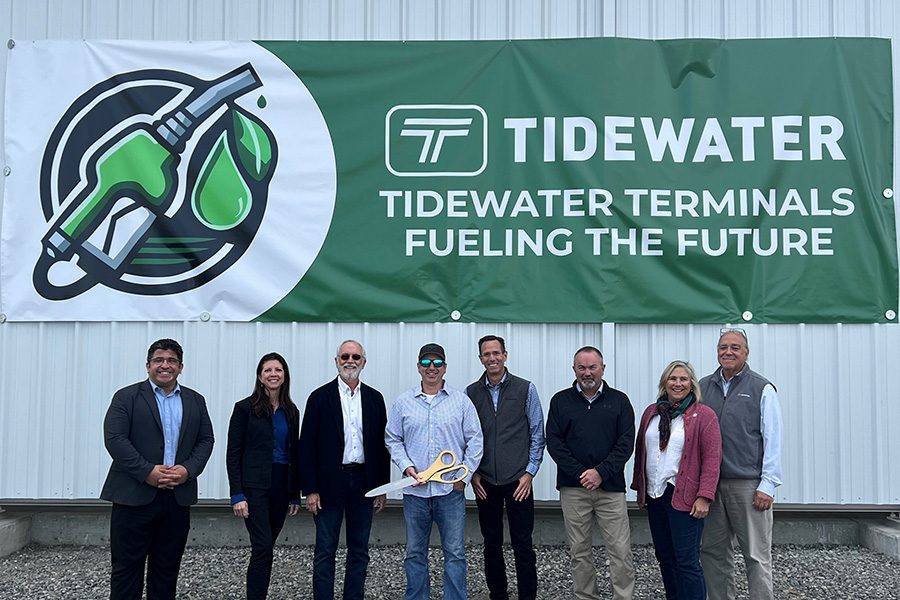
Home » $6.2 million investment powers Northwest’s transition to biodiesel
$6.2 million investment powers Northwest’s transition to biodiesel

Officials gather on Oct. 11, 2024 for a ribbon-cutting ceremony at the new full-service biofuel and renewable diesel distribution facility at Tidewater’s Snake River Terminal in Pasco.
Courtesy Tidewater Transportation and TerminalsOctober 14, 2024
A $6.2 million expansion at Tidewater’s Snake River Terminal in Pasco marks a “significant step in the region’s transition toward cleaner energy solutions,” the company said.
The new full-service biofuel and renewable diesel distribution facility means the terminal has capacity to blend more than 2 million gallons of biodiesel per month, positioning it as “an essential hub for distributing biodiesel to meet the energy needs of the Pacific Northwest, particularly during peak agricultural seasons,” the company said.
Tidewater used a $3.1 million grant from the U.S. Department of Agriculture’s Higher Blends Infrastructure Incentive Program to help pay for the project, which involved adding two tanks for storing biodiesel, among other improvements.
The investment “will enhance the terminal’s capacity to receive biodiesel by rail, blend it on-site, and distribute it via truck to meet increasing regional demand for renewable energy,” Tidewater said in a statement on Oct. 11, after a ribbon-cutting ceremony.
The event drew officials including U.S. Rep. Dan Newhouse, R-Washington.
“As we face unprecedented demand for clean, reliable and affordable energy, I’m thankful Tidewater is expanding the (Pacific Northwest’s) ability to move and use biodiesel critical to our rural communities and the ag economy,” he said later in a statement.
U.S. Sens. Maria Cantwell and Patty Murray, both D-Washington, also have praised the project. “Supplying homegrown fossil fuel alternatives to Washington state’s agriculture economy will help farmers meet their fuel needs while lowering their carbon footprint,” Cantwell said last year in a joint statement with Murray announcing the grant.
“Increasing regional fuel supplies should also help reduce petroleum diesel prices that have remained at historic highs and cost businesses throughout the region,” she said.
Murray added in the 2023 statement that, “Transitioning to a clean energy economy is how we tackle the climate crisis while creating good paying jobs in every part of our state – and that absolutely needs to include our farmers and rural communities. ... This is going to lower costs, lower carbon emissions and strengthen the local economy.”
She called the project “a huge win for the entire Tri-Cities community.”
Aaron Degodny, Tidewater’s vice president and chief commercial officer, said the expansion will help Washington and Oregon meet their goals to reduce carbon emissions.
The project is an exciting step in the company’s efforts to contribute to the state and national climate commitment goals, and “we’re proud to be part of the solution, providing our customers with renewable energy options that help reduce greenhouse gas emissions,” Degodny said in a statement.
Latest News Real Estate & Construction Energy Environment
KEYWORDS October 2024
Related Articles
Related Products




